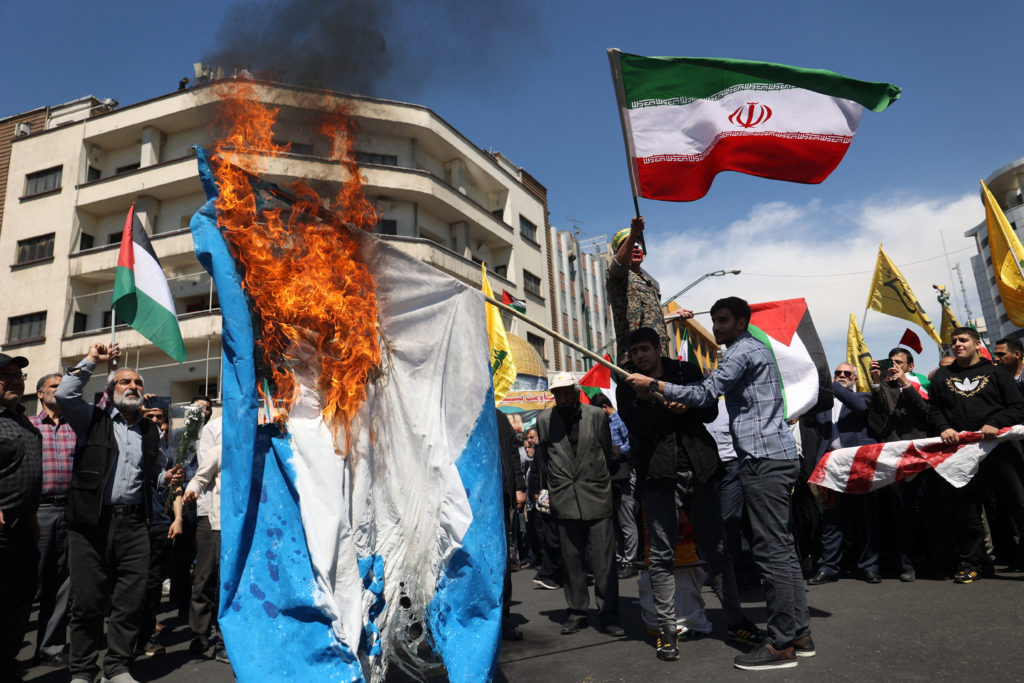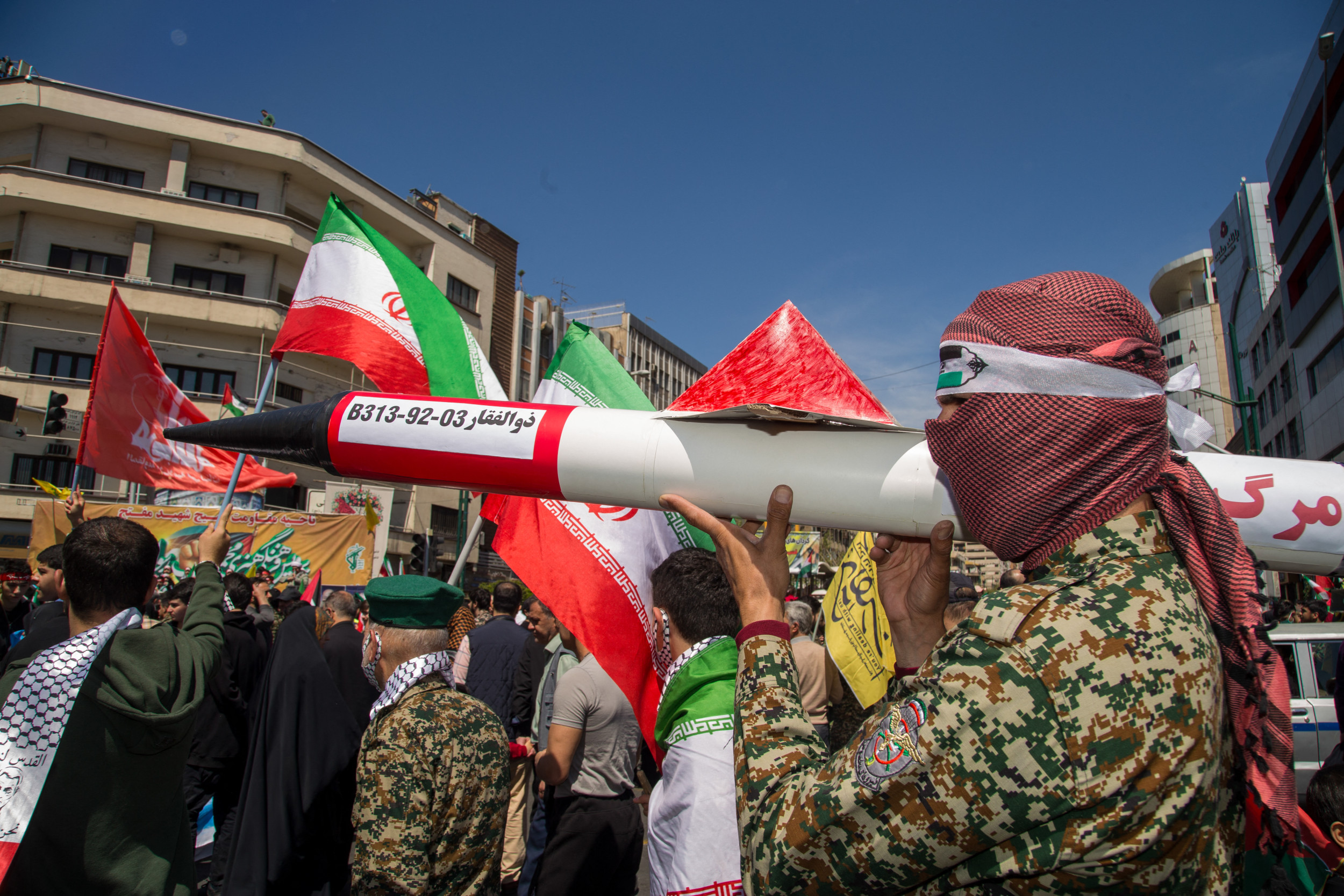The White House has highlighted the significant threat posed to U.S. troops in Iraq and Syria following a series of threats from Iranian leadership. This response was triggered by a suspected Israeli airstrike that resulted in the deaths of several Iranian personnel near their embassy in Damascus.
John Kirby, National Security Council Strategic Communicators Coordinator, emphasized the seriousness of the situation during a virtual press briefing, reiterating President Biden’s support for Israel’s self-defense against Iranian threats and discussing measures to protect U.S. personnel in the region.
Kirby stressed that both military and diplomatic personnel in Iraq and Syria face continuous threats, with particular concern regarding groups supported by the Islamic Revolutionary Guard Corps (IRGC). The IRGC designated a terrorist organization by the U.S. in 2019, operates alongside militias forming the “Axis of Resistance,” which has targeted both Israel and U.S. forces in response to conflicts such as the recent Gaza war and ongoing tensions in Syria.

US Troops Under Significant Threat as Iran Promises Retaliation Against Israel’s Strike (Credits: PBS)
The deaths of Iranian personnel, including high-ranking IRGC commanders, in the Damascus attack have fueled vows of retaliation from Iranian officials. Iranian Foreign Minister Hossein Amir-Abdollahian issued strong statements during his visit to Damascus, promising a severe response to Israel’s actions and emphasizing Iran’s support for the Palestinian cause.
Amid escalating tensions, the Israeli Defense Forces (IDF) have announced heightened readiness measures in response to Iranian threats. Israel’s Chief of the General Staff, Lieutenant General Herzi Halevi, emphasized Israel’s preparedness to counter Iranian aggression, alleging Iran’s involvement in regional conflicts and its support for proxy groups across the Middle East.
Despite the mounting pressure, the Biden administration has refrained from commenting on the specific incident in Damascus. Instead, officials have called for a ceasefire in Gaza and continued engagement with Iraqi leadership regarding the presence of U.S. forces in the region.
As the situation unfolds, militant groups aligned with the “Axis of Resistance,” including Hezbollah, the Islamic Resistance in Iraq, and Ansar Allah (Houthis) in Yemen, have claimed attacks on Israeli and Western targets. These actions underscore the complex web of regional conflicts and the ongoing threat posed by proxy warfare in the Middle East.























